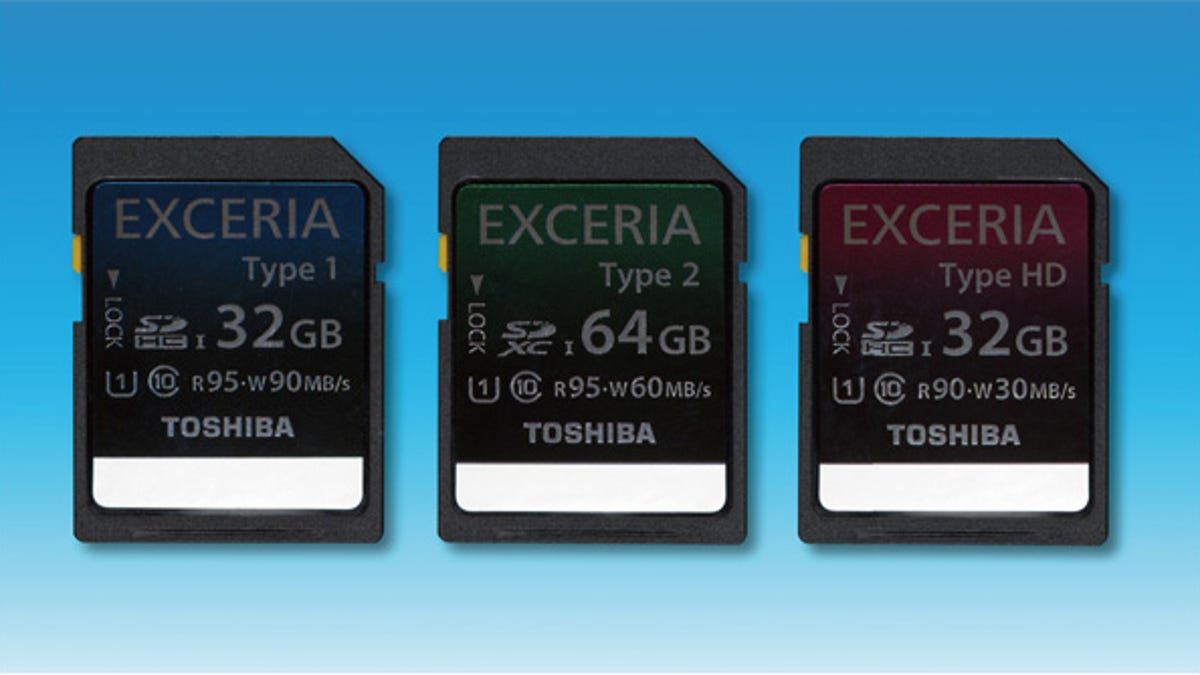Toshiba announces Exceria line of high-speed SD cards
The cards, set to debut between April and August, have top-shelf data-transfer speeds reaching 95MBps.

Toshiba has announced new SDXC and SDHC cards that support the UHS-1 high-speed interface--and the new Exceria brand name to go along with them.
The Exceria name is meant "to reflect a combination of 'excellent' and 'experience,'" Toshiba said in a statement this week, but I wouldn't have guessed that without being told. Too bad Sony got there first with Xperia.
The new cards come in three varieties. At the top of the heap are models that will arrive in July with read speeds of 95MBps and write speeds of 90MBps; they'll come in 8GB, 16GB, and 32GB sizes.
In the middle of the pack are 16GB, 32GB, and 64GB models arriving in August. They read at the same rates but are slower at writing at 60MBps.
Finally come models with 90MBps read speeds and 30MBps write speeds. The 8GB and 16GB are scheduled to arrive in April and the 32GB model in May.
Toshiba, which is a major power in flash memory manufacturing, didn't announce prices.

